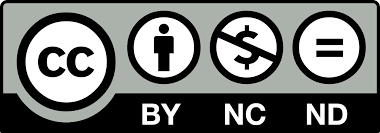The Role of ICT in the Smart City Concept
Mariusz Czupich
Faculty of Economic Sciences and Management, Nicolaus Copernicus University in Toruńhttps://orcid.org/0000-0001-8009-9992
Abstract
The concept of a smart city enables the effective implementation of public services despite the negative consequences related to population growth in large cities. City authorities, in the face of growing demand for public services, often use a wide range of smart city instruments in various areas of operation. Despite the fact that a large part of innovative solutions is widespread and used, such as intelligent transportation systems or e-office, new opportunities are still emerging which are aimed at improving the quality of life for city dwellers. The aim of the article is to define the role of ICT in smart city management. The subjects of analysis are innovative instruments used in technologically advanced cities as well as contemporary challenges facing city management. The functioning of the city depends to a large extent on access to the communication network, mobile devices as well as on infrastructure connected with them. Therefore, it is necessary, on the one hand, to ensure the capacity of connections and network communication, and, on the other hand, to involve citizens in the process of creating new solutions.
Keywords:
smart city, ICT, city developmentReferences
Arnkil, R., Järvensivu, A., Koski, P., & Piirainen, T. (2010). Exploring Quadruple Helix. Outlining User-Oriented Innovation Models. Working Papers, 85, Tampere: University of Tampere.
Bioenabletech. Retrieved from https://www.bioenabletech.com/integrated-solid-waste-managementsolution
(25.01.2018).
Caragliu, A., Del Bo, C., & Nijkamp, P. (2011). Smart Cities in Europe. Journal of Urban Technology, 18(2), 65-82. https://doi.org/10.1080/10630732.2011.601117.
Farelnik, E., & Stanowicka, A. (2016). Smart city, slow city and smart slow city as development models of modern cities. Olsztyn Economic Journal, 11(4), 359-370.
Giffinger, R., Fertner, C., Kramar, H., Kalasek, R., Pichler-Milanovic, N., & Meijers, E. (2007). Smart Cities — Ranking of European Medium-Sized Cities (Report). Vienna: Vienna University of Technology, Centre of Regional Science.
Glasmeier, A., & Christopherson, S. (2015). Thinking about smart cities. Cambridge Journal of Regions, Economy and Society, 8(1), 3-12. https://doi.org/10.1093/cjres/rsu034 (22.01.2018).
Hanna, N. (2016). Mastering Digital Transformation: Towards a Smarter Society, Economy, City and Nation (Innovation, Technology, and Education for Growth). Bingley: Emerald Group Publishing Limited.
Kazmi, A., Jan, Z., Zappa, A., & Serrano, M. (2017). Overcoming the Heterogeneity in the Internet of Things for Smart Cities. In I. Podnar Žarko, A. Broering, S. Soursos & M. Serrano (Eds.). Interoperability and Open-Source Solutions for the Internet of Things. InterOSS-IoT 2016:Interoperability and Open-Source Solutions for the Internet of Things. Stuttgart. https://doi.org/10.1007/978-3-319-56877-5_2.
Kosowatz, J. (2017). Building a Smart City. Mechanical Engineering, 139(08), 32-37. https://doi.org/10.1115/1.2017-Aug-1.
Labcities. Retrieved from http://www.labcities.com/16-tech-jobs-that-will-be-needed-for-the-futureof-smart-cities/ (18.01.2018).
Lea, R. (2017). Smart Cities: An Overview of the Technology Trends Driving Smart Cities. Advancing Technology for Humanities. Retrieved from https://www.ieee.org/publications_standards/publications/periodicals/ieee-smart-cities-trend-paper-2017.pdf (25.01.2018).
Lee, J.H., Hancock, M.G., & Hu, M-C. (2014). Towards an Effective Framework for Building Smart Cities: Lessons from Seoul and San Francisco. Technological Forecasting & Social Change, 89, 80-99. https://doi.org/10.1016/j.techfore.2013.08.033.
Nam, T., & Pardo, T.A. (2014). The Changing Face of a City Government: A Case Study of Philly311. Government Information Quarterly, 31, 1-9. https://doi.org/10.1016/j.giq.2014.01.002.
Perng, S-Y., Kitchin, R., & Donncha, D.M. (2017). Hackathons, Entrepreneurship and the Passionate Making of Smart Cities. Open Science Framework, 3, Retrieved from https://osf.io/nu3ec/ (12.01.2018).
Popytowe podejście do tworzenia innowacji. Doświadczenia krajów skandynawskich. (2012). Warszawa: Polska Agencja Rozwoju Przedsiębiorczości.
Robert, J., Kubler, S., Kolbe, N., Cerioni, A., Gastaud, E., & Främling, K. (2017). Open IoT Ecosystem for Enhanced Interoperability in Smart Cities – Example of Métropole De Lyon. Sensors, 17(2849). Retrieved from http://www.mdpi.com/1424-8220/17/12/2849/pdf (23.01.2018).
Smart Solutions for Sustainable Cities. (2017). Deutsche Telekom AG. Retrieved from www.telekom.com/resource/blob/508354/34b13446226d1164c5dcc0d0e7fb0eea/dl-171113-whitepaper-smartcity-en-data.pdf (15.01.2018).
SmartCitizen. (2018). Retrieved from https://smartcitizen.me/about (24.01.2018).
Snow, C.C., Håkonsson, D.D., & Obel, B. (2016). A Smart City is a Collaborative Community: Lessons from Smart Aarhus. California Management Review, 59(1), 92-108. https://doi.org/10.1177/0008125616683954.
TechRepublic. (2018). Retrieved from www.techrepublic.com/ (17.02.2018).
Telekom. (2018). Retrieved from https://www.b2b-europe.telekom.com/download/smart-public-safety (17.12.2018).
T-systems. (2018). Retrieved from https://www.t-systems.com/blob/782570/b6c115fadd7e5c3ba7520cbb20fdf82e/DL_Best-Practice _FT03-Vernetzte-Stadt.pdf (15.12.2018).
Weisi, F., & Ping, P. (2014). A Discussion on Smart City Management Based on Meta-Synthesis Method. Management Science and Engineering, 8(1), 68-72.
World Migration Report 2015. (2015). Geneva: International Organization for Migration.
Zanella, A., Bui, N., Castellani, A., Vangelista, L., & Zorzi, M. (2014). Internet of Things for Smart Cities. IEEE Internet of Things Journal, 1(1). https://doi.org/ 10.1109/JIOT.2014.2306328 (24.01.2018).
Faculty of Economic Sciences and Management, Nicolaus Copernicus University in Toruń
https://orcid.org/0000-0001-8009-9992
License
An Author declares that his paper has not been published before (under the same or another title, or is a part of another publication) and does not infringe copyrights of other persons**. At the same time, the Author transfers to the Publisher the exclusive right to publish and to circulate this work in print in the form of a non-serial journal publication and in a form of an electronic publication.
The journal is available on Creative Common license CC-BY-NC-ND






